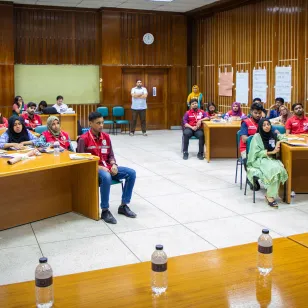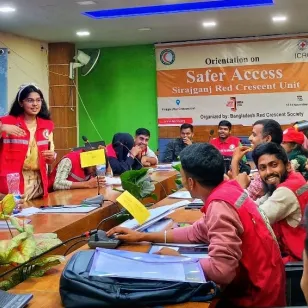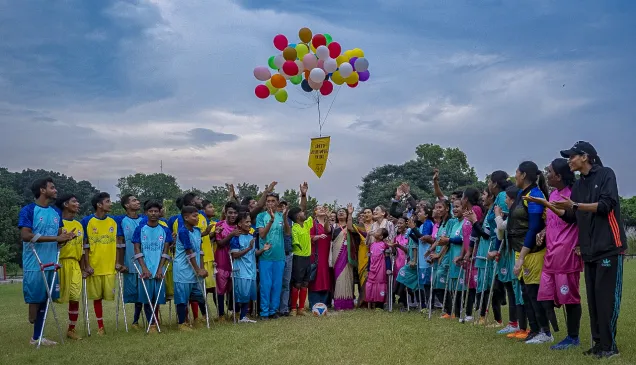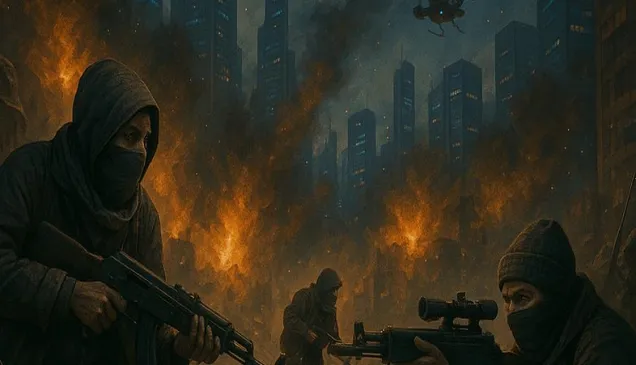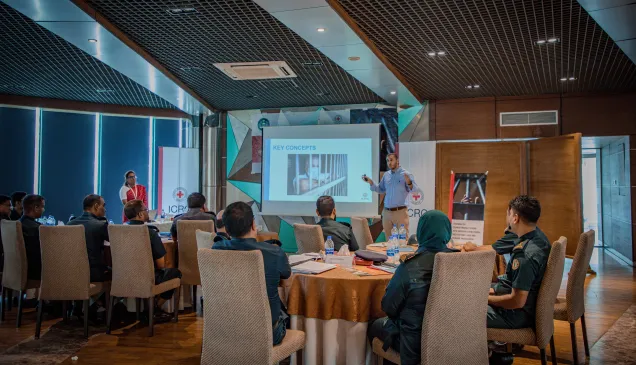Bangladesh: Training empowers staff, volunteers of Bangladesh Red Crescent to deliver humanitarian aid safely
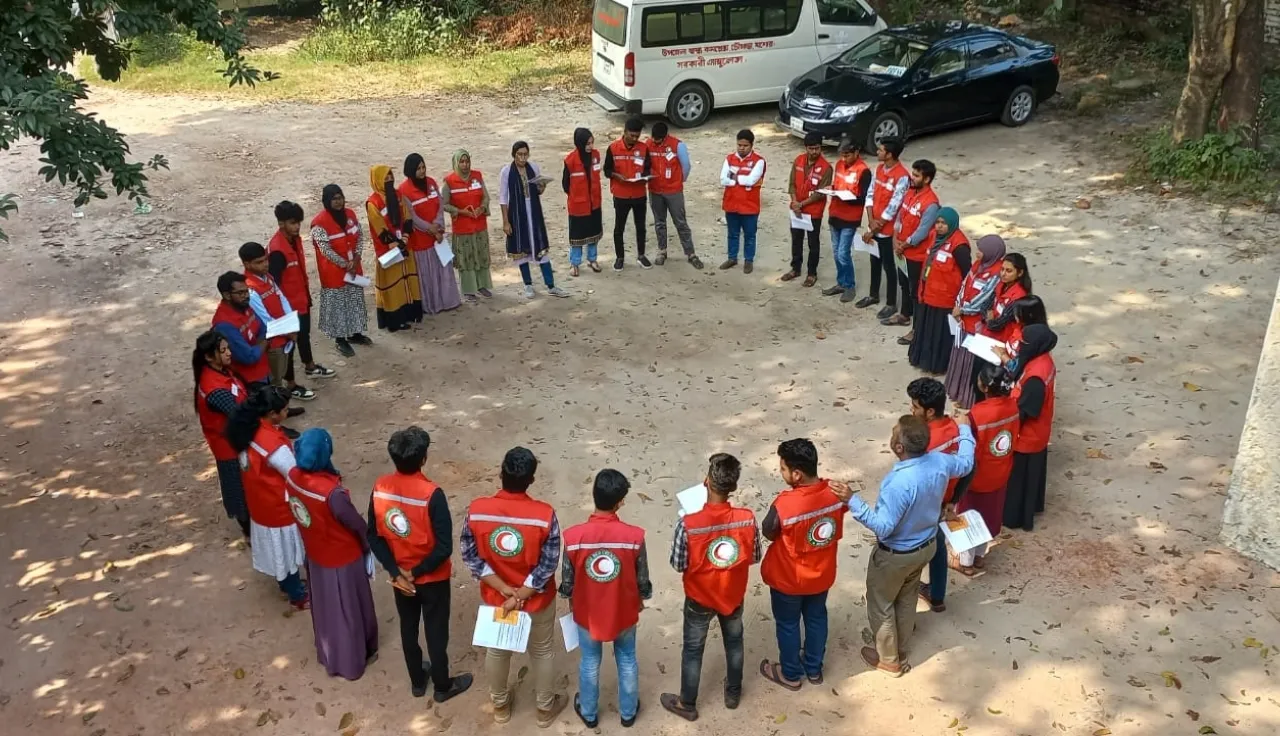
Around 800 staff and volunteers of the Bangladesh Red Crescent Society (BDRCS) were trained in the principles of Safer Access Framework, key to understanding how to respond effectively to a humanitarian crisis in a safe way in sensitive and insecure contexts such as amid armed conflict or other violence.
Led by the National Society, with support from the International Committee of the Red Cross (ICRC), the training sessions were held over a span of a month for staff and volunteers of 25 BDRCS branches across the country. Areas that are most exposed to political unrest and natural disasters were prioritized.
“The initiative is an excellent step towards enhancing the National Society’s acceptance in the field by fostering a positive perception among influential external parties. Through the programme, we ensure that Safer Access principles are embedded into the broader scope of our operations, from disaster response to community services,” said Kabir Muhammad Ashraf Alam, secretary-general of the Bangladesh Red Crescent.
For youth volunteer Muhammad Shanto from Bhola, attending the Safer Access orientation session was a turning point. “It makes our fieldwork safer, more secure and more effective,” he said.

Participants were taught about the National Society’s mandates, the seven Fundamental Principles of the International Red Cross and Red Crescent Movement and its policy on safety and security. The training also emphasizes the responsible use of digital and social media. “Many of us didn’t realize how understanding our Code of Conduct and mandate could help reduce risks in the field,” said Akibul Hasan, a youth volunteer from Thakurgaon.
The sessions, held from 12 November to 25 December 2024, were led by a pool of 29 staff and volunteers, who were carefully selected following rigorous training. Faisal Ahmed, one of the resource members, has so far facilitated three Safer Access orientation sessions. “The BDRCS Safety and Security Policy and Guidelines are now widely known at the branch level, which was not the case before these sessions,” he said.
Following the training, each branch of the National Society developed a plan of action tailored to meet the challenges unique to them, ensuring that the training provided translates into real-world strategies. “The initiative enables the Bangladesh Red Crescent to integrate Safer Access principles into district-level programmes. With a trained resource pool and a focus on local needs, the National Society is now equipped to spread this vital knowledge across every branch in the country,” said Agnès Dhur, head of the ICRC’s delegation in Bangladesh.
By empowering its volunteers and staff with the tools to navigate risks and foster trust, the Safer Access initiative is changing how the National Society works in sensitive contexts.

